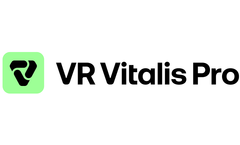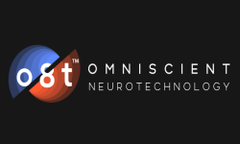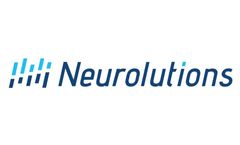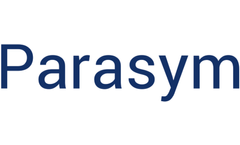Refine by
Brain Functions Articles & Analysis
37 articles found
This innovative approach has led to breakthroughs in understanding complex brain functions, neurodegenerative disorders, and psychiatric conditions. ...
It has been studied for its ability to support joint health, improve brain function, and reduce the risk of various diseases. However, curcumin's bioavailability – the degree to which it is absorbed and utilized by the body – is relatively low when taken in its standard form. ...
Including natural lipids in your diet can contribute to a healthier cardiovascular system. Supporting Brain FunctionThe brain is composed of nearly 60% fat, and natural lipids play a crucial role in maintaining optimal brain function. Omega-3 fatty acids, in particular, are essential for brain development and ...
ByMatexcel
User A young man (28 years old) who is confined to a wheelchair after a car accident or spinal cord injury. In addition to motor problems, he has mainly speech and memory problems, which significantly isolates him socially. ...
What is neuroplasticity? The ability of the nervous system to respond to external and internal stimulations and to change its activity based on these changes. By responding to these stimuli it is meant to reorganize its structure of individual centers and their functional interconnections. Physiologically, these plastic changes can be observed during the actual development of the nervous system, ...
When tryptophan is consumed, the amino acid travels from the digestive system to the brain. There, the brain turns tryptophan into a chemical known as serotonin. ...
Introduction By leveraging Connectomics to trace functional connectivity, seven large-scale brain networks have been identified. These networks have the most dominance over cortical function in the brain, and each serves an overarching common function. While some networks are familiar, many networks, and ...
Understand The Root Cause Of Arm Paralysis Arm and hand control via billions of brain network connections is a very sophisticated process. When there is interrupted blood flow to specific regions of the brain’s cortex that control planning and execution of movement, arm and/or hand function will suffer. ...
For anyone who lives with PTSD or cares about someone who does, it likely doesn’t come as a surprise to hear that people with PTSD often struggle with relationships. And yet social support may actually help improve symptoms. So why is it so hard? And why do people with PTSD symptoms so often seem to push away the loved ones who want to support them? Several recent studies have explored ...
Over the course of time, humankind has been continuously searching for methods to remain young, preserve their health and become more and more efficient in all aspects of their existence. Especially nowadays, in the fast-paced world that we all live in, it is important to maintain a balanced lifestyle and to prioritize the health of our bodies and minds. But do you really have the time to ...
Meditation is often thought of as an avenue to clarity and self-awareness, but it may also be an avenue to better brain health. Emerging research suggests meditation may have significant benefits to brain health, ranging from improved mental and behavioral health to enhanced cognitive function. In this article, we will break down how meditation ...
There is no such thing as unimportant, or non-eloquent, brain. For decades, neuroscientists and clinicians have studied the brain attempting to pinpoint the regions that control specific functions. ...
In addition to the pandemic, the digitization of healthcare is rapidly shifting clinical trials from analog to hybrid or fully decentralized clinical trials, catalyzing the development and implementation of digital health technologies to support clinical research. Digital endpoints not only support the decentralization of clinical trials but also provide a means to collect more sensitive, ...
It is no secret that glucose, a form of sugar, is the main source of energy for every cell in our bodies, including our brain cells. Because the brain is packed with neurons, it uses more energy than any other organ in the body. ...
Primary care practitioners are often the first to address a patient’s or family’s concerns about memory loss or the possibility of dementia. Detecting cognitive decline as early as possible is fundamental to a patient’s ability to receive earlier access to treatments and therapies, and, consequently, more effective treatment and improved health outcomes. There are several ...
Among the mental health “hacks” that have gone viral online recently: dealing with anxiety attacks by sucking on sour candy or dunking your face in ice water. The idea is to distract yourself from panic symptoms by changing your focus. So, does it work? It might seem to help people with moderate panic attacks. “By definition, panic attacks are time-limited,” says ...
This research emphasizes the importance of identifying and controlling modifiable risk factors for cognitive decline and dementia as early as possible while monitoring brain health to detect changes in brain function as early as possible. Here is everything you need to know about smoking and cognitive decline, including a breakdown of the ...
Other CPPs present additional advantages such as tumor-homing, penetration through the blood-brain barrier, and antimicrobial activity. l FeaturesThe most remarkable feature of cell-penetrating peptides is that it’s able to penetrate the cell membrane at low micromolar concentrations in vivo and in vitro, without using any chiral receptors and without causing significant ...
Depression and the vagus nerve Depression affects millions of people worldwide and constitutes a leading cause of disability. Although pharmacological interventions are available, many of them produce suboptimal outcomes due to high non-responsive rates or intolerable side effects. It has been estimated that between 20 to 40 per cent of patients either failed to respond to conventional ...
Predicting Treatment Success Transcutaneous vagus nerve stimulation (tVNS) has recently emerged as a promising treatment for depression and an effective mood enhancer, showing benefits over similar treatments including traditional vagus nerve stimulation (VNS) which is invasive and costly. tVNS targets the auricular branch of the vagus nerve and works by applying a small electrical stimulation ...












